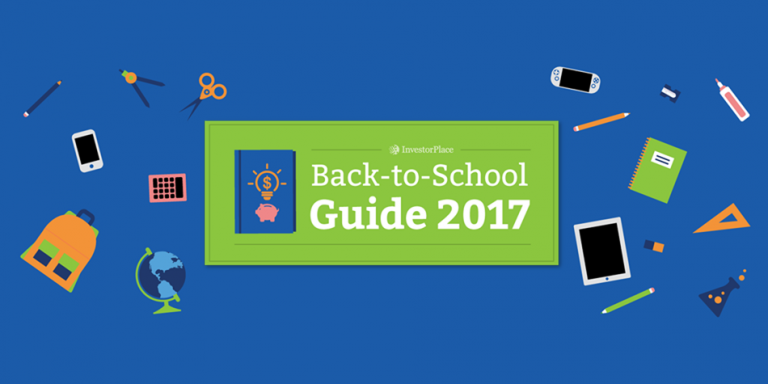My wife and I have been sending kids off to college for a decade now. We’ve been funding the national education system since the early 1990s. We’ve yet to see a return on our money, save better dinner conversations, but we have learned a few things that might help you, and yours, as school comes back in session.
 The period of going back to school is an innately teachable moment: It’s your best opportunity to teach kids responsibility with personal finance, budgeting and about money in general.
The period of going back to school is an innately teachable moment: It’s your best opportunity to teach kids responsibility with personal finance, budgeting and about money in general.
Even a five-year old can sense when you’re stressed. So you can either expand their privilege bubble by blowing hot air until you’re blue in the face, or you save them a lot of grief and level with them about the hardships of money and how to avoid them.
Budgeting
A list is the key. Going back to school is the time to go through closets, drawers and bedrooms, learning what you have, what you need and what you need more of. Set a budget as a family, and let the kids know what they’re going to miss if (when) they go over budget.
If your state has a sales tax holiday, bring your list. Do not enter any store without knowing what you will get and a clear idea of the store’s best deals. Make a game of it. The kid who beats their budget by the most gets something the other ones don’t get.
Technology helps. An app like Flipp, designed to sort shopping lists and coupons, can teach money-saving habits that last a lifetime. While automated savings apps can do the heavy lifting of financial discipline for your teen.
Bringing the kids into the money game when it comes time to go back to school will cut your stress levels, bring your family closer together, and teach lessons that last a lifetime.
Credit for Teens
My wife and I both worked for our parents coming up. Our kids both had custodial investment accounts, money we saved together, that they got access to on turning 21. The effect of their seeing “my” money, as opposed to mom and dad’s money, can be electric.
Despite all I’ve read from other journalists, most kids aren’t going to become stock pickers at 13. (I was a weirdo.) Just finding a good mutual fund, with decent returns and minimal management fees, will do wonders. Be consistent. A little each month. Match every dollar if you can.
Now, credit cards. They should get one after they’re earning their own money. This could be the traditional summer job before going back to school, such as mowing lawns or babysitting. Or wait until that first year of college, when you must make their job of meeting a budget real.
The ideal card is one with a long grace period, no annual fee and free credit checks. If you’re going to take any affiliate card, make it one from a store or other merchant that your teen frequents. Make sure you can get a copy of their monthly bill and, whatever the stated interest rate, teach paying it off each month.
You use credit for what you need, not what you want. You need college, you may need a car or a suit for job interviews. The first time a kid gets a credit card bill without the cash to pay it off is a teachable moment. You may be able to pay that off for them, but don’t let the moment pass.
If they money they’re wasting is yours and they go over budget, pull the card, and give them a debit card tied to a banking account with limited funds. Don’t let little stuff slide. It can become big stuff fast.
Cutting College Costs
I was spoiled. I got into a great college out of high school, with enough financial aid to cover it. If you can find one of these golden tickets, grab it. But most kids don’t get that ticket. Mine didn’t. The lesson here is it matters less where you start than where you finish. There’s nothing wrong with community college. My daughter used a good record there to find a sound four-year program. You can cut degree costs by nearly half.
Sure, all that advice about playing hardball on financial aid and considering loans applies, but when it comes to loans, the rules on credit applies. Don’t borrow for something that won’t bring a return. Doctors leave medical schools with huge loan balances. Poets shouldn’t.
Many states have savings plans tied to attending in-state colleges. That’s important, as 68% of people don’t even know college savings plans exist. A 529 plan, for example, can net double the interest of your high-yield savings account, while offering tax benefits that typical savings accounts don’t.
Other states discount tuition for in-state schools for students with good grades. Our son went to college tuition-free for four years while he figured out what he wanted to do. Now we’re glad to pay for his graduate school. He knows his path.
College is when money gets serious. The strain of going back to school and paying for it is useful. I have relatives who had college handed to them, and others who had to find the money themselves. I’d much sooner trust the second group.
Dana Blankenhorn is a financial and technology journalist. He is the author of the historical mystery romance The Reluctant Detective Travels in Time, available now at the Amazon Kindle store. Write him at danablankenhorn@gmail.com or follow him on Twitter at @danablankenhorn. As of this writing he owned no shares in companies mentioned in this article.
